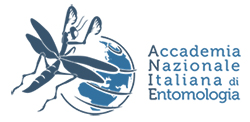
Andrea Crisanti
andrea.crisanti@unipd.it
BIOGRAPHY
Professor of Molecular Parasitology at Imperial College, graduated in Medicine at the University of Rome “la Sapienza’ and carried my doctoral work at the Basel Institute for Immunology. I have pioneered the molecular biology of the human malaria vector Anopheles gambiae and have made a number of important scientific contributions that advanced the genetic and molecular knowledge of the malaria parasite and its mosquito vector. I recently returned to Italy where I have been appointed as Director of the Department of Molecular Medicine and of the Laboratory of Virology and Microbiology at the Hospital/University of Padua. I was involved in the pilot study of Vo’ Euganeo on the first outbreak of Covid-19 in Italy and joined a high-caliber task force for the management of the emergency in Veneto. During my research career I have been awarded several competitive grants from national and international research agencies including the Wellcome Trust, BBSRC, the European Commission, the BMGF and NIH for more than €40 M over the last 20 years.
Andrea Crisanti is Director of the Department of Molecular Medicine and of the Laboratory of Virology and Microbiology at the Hospital/University of Padua, Italy. He recently returned to Italy from Imperial College London, where he is professor of molecular parasitology (currently on leave).
Professor Crisanti has pioneered the molecular biology of the human malaria vector Anopheles gambiae and has made several important scientific contributions that advanced the genetic and molecular knowledge of the malaria parasite and its mosquito vector. His work is based on a visionary solution aimed to harness genetic elements that would allow genetic modifications to spread from a few individuals to an entire vector population. These modifications are able to either interfere with mosquito fertility, thereby causing population suppression, or make mosquitoes resistant to the malaria parasites, rendering them innocuous, thus blocking the disease transmission. The power of this approach was recently demonstrated by the crashing of laboratory cage populations inoculated with a relatively small number of individuals carrying a targeted gene drive. This remarkable breakthrough has important implications for the field of synthetic biology and gene editing as whole, and will inform advances in the control of malaria and other vector-borne diseases. More recently, Professor Crisanti has carried out important epidemiological studies on the first outbreak of Covid-19 in Italy, with results that have been instructive to implement virus control measures both nationally and in other countries, and was involved in a dedicated high-caliber task force for the management of the emergency in Veneto.
Lavezzo, Enrico, Franchin, Elisa, Ciavarella, Constanze, Cuomo-Dannenburg, Gina, Barzon, Luisa, Del Vecchio, Claudia, Rossi, Lucia, Manganelli, Riccardo, Loregian, Arianna, Navarin, Nicolò, Abate, Davide, Sciro, Manuela, Merigliano, Stefano, De Canale, Ettore, Vanuzzo, Maria Cristina, Besutti, Valeria, Saluzzo, Francesca, Onelia, Francesco, Pacenti, Monia, Parisi, Saverio, Carretta, Giovanni, Donato, Daniele, Flor, Luciano, Cocchio, Silvia, Masi, Giulia, Sperduti, Alessandro, Cattarino, Lorenzo, Salvador, Renato, Nicoletti, Michele, Caldart, Federico, Castelli, Gioele, Nieddu, Eleonora, Labella, Beatrice, Fava, Ludovico, Drigo, Matteo, Gaythorpe, Katy A M, Brazzale, Alessandra R, Toppo, Stefano, Trevisan, Marta, Baldo, Vincenzo, Donnelly, Christl A, Ferguson, Neil M, Dorigatti, Ilaria, Crisanti, Andrea (2020). Suppression of a SARS-CoV-2 outbreak in the Italian municipality of Vo’. NATURE, ISSN: 0028-0836, doi: 10.1038/s41586-020-2488-1
Simoni A, Hammond AM, Beaghton AK, Galizi R, Taxiarchi C, Kyrou K, Meacci D, Gribble M, Morselli G, Burt A, Nolan T, Crisanti A. (2020). A male-biased sex-distorter gene drive for the human malaria vector Anopheles gambiae. NATURE BIOTECHNOLOGY, vol. 38, p. 1054-1060, ISSN: 1087-0156, doi: 10.1038/s41587-020-0508-1
Bernardini F., Kriezis A., Galizi R., Nolan T., Crisanti A. (2019). Introgression of a synthetic sex ratio distortion system from Anopheles gambiae into Anopheles arabiensis. SCIENTIFIC REPORTS, vol. 9, 5158, ISSN: 2045-2322, doi: 10.1038/s41598-019-41646-8
Kyrou K., Hammond A. M., Galizi R., Kranjc N., Burt A., Beaghton A. K., Nolan T., Crisanti A. (2018). A CRISPR-Cas9 gene drive targeting doublesex causes complete population suppression in caged Anopheles gambiae mosquitoes. NATURE BIOTECHNOLOGY, vol. 36, p. 1062-1066, ISSN: 1087-0156, doi: 10.1038/nbt.4245
Beaghton A, Hammond A, Nolan T, Crisanti A, Godfray HC, Burt A (2017). Requirements for driving anti-pathogen effector genes into populations of disease vectors by homing GENETICS, vol. 4, p. 1587-1596, ISSN: 0016-6731, doi: 10.1534/genetics.116.197632
